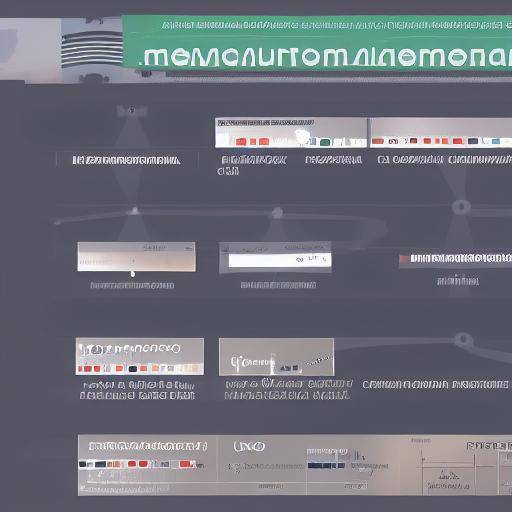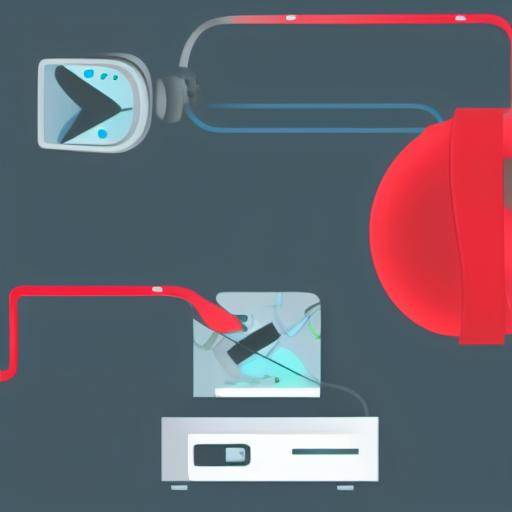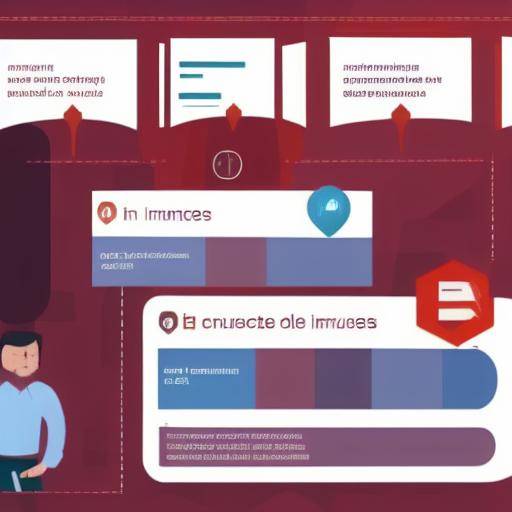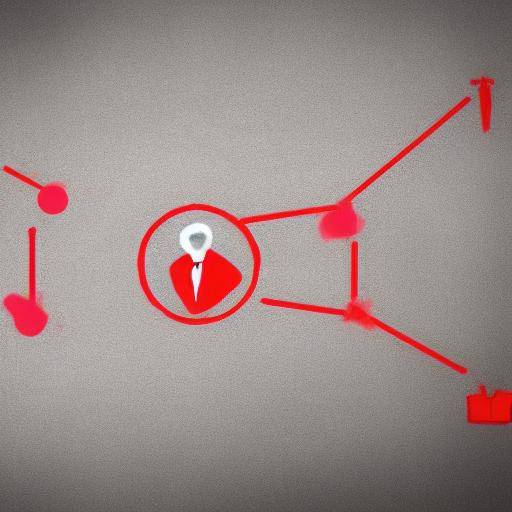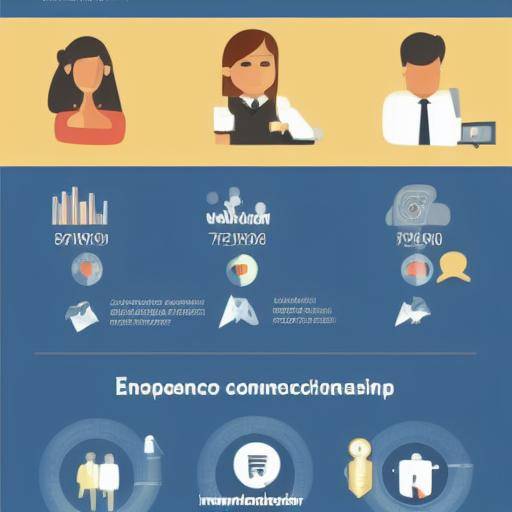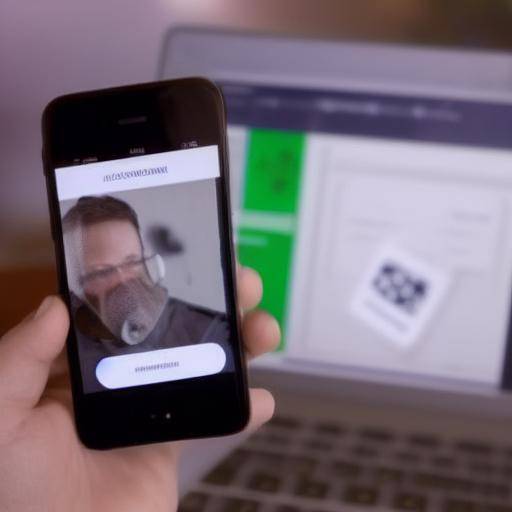
Feedback is a key tool in effective communication, especially in the context of active listening. This article explores in detail the importance of feedback in active listening practice and how these communication skills impact on personal, professional and social life. From its historical origin to future trends, the evolution of this practice so essential in communication will be analysed. In addition, a guide will be provided through practical advice, expert opinions, case studies and predictions on emerging trends in this area.
Introduction
Effective communication is a fundamental pillar in human interaction, and feedback plays a crucial role in this process. Active listening, for its part, implies a deep understanding and ability to process the information received. In this article, we will explore how feedback improves the quality of active listening and strengthens communication skills in various contexts. From history to practical applications, this guide will provide a comprehensive and up-to-date view of these fundamental issues.
History and Background
Feedback as a communicative practice has deep roots in the history of humanity. From ancient philosophies to the digital era, it has evolved significantly, impacting the way we communicate and understand others. During the centuries, various philosophical currents and psychological studies have helped to enrich the understanding of feedback and its impact on active listening.
Modern feedback is based on the theory of communication, particularly in the Shannon and Weaver model, which conceptualizes communication as a complex process of transmission and interpretation of messages. Over time, feedback has been recognized as an essential element in the effectiveness of communication, which has led to its widespread adoption in various disciplines, from pedagogy to business.
Deep analysis
Effective feedback on active listening not only involves the transmission of information, but also the understanding of the emotions and needs of the interlocutor. Active listening practice, in turn, requires full attention, empathy and reflective response. In this sense, feedback becomes an invaluable tool to validate and enrich the experience of the other, thus building healthier and more meaningful relationships.
Various studies and statistics support the benefits of feedback on active listening, highlighting its positive impact on conflict resolution, strengthening work teams and improving the working climate. Organizations that foster a culture of constructive feedback have increased productivity and job satisfaction, demonstrating the relevance of these practices in professional environments.
Comprehensive review
The implementation of feedback in active listening requires a holistic approach that encompasses both the interpersonal and the intrapersonal dimension. It is essential to understand the challenges and best practices in the management of feedback, as well as its impact on self-consciousness and personal development. In addition, the comparative analysis of different feedback methodologies can help identify those that maximize mutual understanding and growth.
In exploring the future implications of feedback on active listening, it is crucial to consider the role of artificial intelligence and global interconnection in the evolution of communication practices. The integration of technological tools can enhance feedback and active listening, offering opportunities for new forms of interpersonal and professional interaction.
Comparative analysis
Feedback and active listening, in conjunction with communication skills, take place in an intricate network that deserves to be understood in sutotality. Although each has its particularities, its integration provides powerful synergies that strengthen mutual understanding and communicative effectiveness. The understanding of the subtleties and differences between these practices facilitates a more comprehensive approach in building solid and effective relationships in various contexts.
Practical Tips and Accessible Tips
Effective implementation of feedback in active listening requires concrete and practical strategies that promote an environment conducive to meaningful communication. Providing clear guidelines and proven strategies can enhance people's ability to use feedback constructively, thereby fostering mutual understanding and growth.
Some practical tips that can facilitate the integration of feedback into active listening include:
- Practice active empathy by listening to the needs and emotions of the interlocutor.
- Use clear and constructive language by offering feedback.
- Promote an atmosphere of confidence and openness for bidirectional communication.
- Set specific moments for constructive feedback in work and personal environments.
Industrial Perceptions and Expert Reviews
Finding the perspective of experts in communication and human interaction provides an enriching view on the relevance and impact of feedback on active listening. Expressing opinions and perceptions of leading leaders in this field provides a deeper and more diverse understanding of how these practices are shaping organizational and social dynamics today.
Various experts in communication and psychology have highlighted the importance of feedback in active listening as a catalyst for personal and professional growth. Their perspectives on the transformative role of feedback in conflict resolution, effective leadership and the building of solid relationships corroborate the relevance of these practices in everyday life.
Case Studies and Practical Applications
Case studies are concrete examples that illustrate the effective application of feedback in active listening in various environments. These real cases allow us to understand how feedback has been key in solving complex situations, strengthening work teams and promoting a positive working climate.
Exploring practical applications of feedback and active listening in everyday contexts, such as the family, non-profit organizations and the educational field, provides an integral vision of the transformative impact of these practices on society. Specific examples of how feedback has helped improve communication and relationships in these areas provide a practical and insightful perspective.
Future Trends and Predictions
The analysis of emerging trends in feedback, active listening and communication skills allows us to glimpse the future of these practices in an interconnected and constantly evolving world. The integration of feedback into virtual environments, the customization of communication strategies and the development of innovative tools are aspects that will mark the evolution of these practices in the near future.
The predictions about the direction that will take feedback and active listening provide an intriguing picture of how these communication skills will adapt to the changing demands of society. The impact of artificial intelligence, digital platforms and dynamics of global interaction create a scenario in which feedback and active listening will play even more significant roles in human communication.
Conclusions and FAQs
The feedback on active listening, together with communication skills, is an essential step in human interaction, capable of enhancing mutual understanding and personal and collective growth. By understanding the history, benefits and applications of feedback in active listening, the basis for more effective and enriching communication is laid down in all spheres of life.
Frequently asked questions
What is the difference between feedback and active listening?
Feedback refers to the communication of performance information or results to a person or group, while active listening involves giving full attention to what is being said, demonstrating interest and understanding the content and context of communication.
Why is feedback important in active listening?
Feedback allows the issuer of a message to know if it has been properly understood, builds confidence in communication and promotes the construction of more effective and meaningful relationships.
How can I improve my active listening skills?
You can improve your listening skills by practicing empathy, removing distractions, formulating open questions and demonstrating genuine interest in what the other person is communicating.
What is the impact of feedback on the workplace?
In the workplace, effective feedback promotes a more productive working environment, improves individual and collective performance, and strengthens interpersonal relationships within the organization.
How can I offer constructive feedback?
To offer constructive feedback, it is crucial to be specific, use clear and non-confrontative language, focus on observable behaviors and provide suggestions for improvement.
What is the role of feedback in personal development?
Feedback contributes significantly to personal development by providing valuable information that allows growth, self-consciousness and continuous improvement in key areas of life.
Conclusion
The feedback on active listening and its integration with communication skills constitute an indispensable axis in human interaction. From its historical evolution to future projections, these practices continue to shape the way we communicate and understand others. In understanding the importance of feedback in active listening, a comprehensive and enlightening picture of the transforming power of these skills is displayed in everyday, professional and social life.











